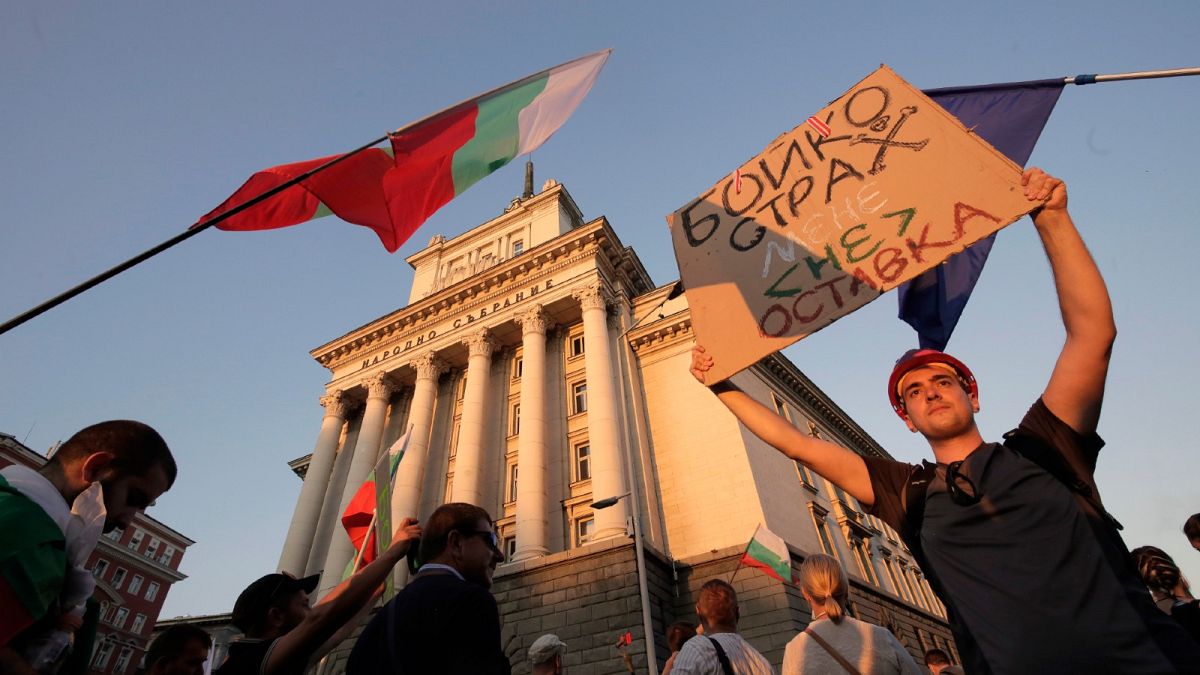A group of protesters also went on a hunger strike and one activist threatened to set herself on fire.
As anti-government protests in Bulgaria stretch into their second month, demonstrators are finding new ways of making themselves heard.
First, they blocked major roads in the capital Sofia and in other locations throughout the country.
A group of protesters also went on a hunger strike and now they are planning to relay each other.
"This is a more individual form of protest," military journalist Silvia Sirakova-Gvozden, one of the leaders of the so-called "starvers", told Euronews.
"We know how they protest in Serbia or in Greece... they break everything," she added. "Whereas here, we are putting ourselves on the line, we are taking full moral responsibility to achieve our goal."
The main thing driving the more extreme forms of protest is the inability to get the message through and the feeling of being unheard.
Nikolay Gatsev, a lawyer and ex-MP, told Euronews he previously carried out a hunger strike after he was "socially wronged".
This time around, it's about showing solidarity: "Last time I starved myself for 60 days. I'd lost half my current weight. I was ready to go through to the end," he said.
"Now I am ready to go as far as my friends are because I'm part of a collective. We are 100,000, 200,000 strong, and we do not want this government, this parliament or this chief prosecutor."
Around a week after the first roads were blocked as part of the protest, police cleared major junctions in Sofia.
Activist Diana Kishkilova threatened to set herself on fire if the base camps were destroyed again.
She said she's rallying against what she feels is a deeply unfair justice system: "The Sofia police chief said he would raze the camps. I don't think that these tents hurt the constitutional rights of anyone. We are also Bulgarian citizens and we have the same constitutional rights. It was hurtful to hear him talk this way."
Prime minister Boyko Borissov's response to discontent and civil disobedience has so far been inconsistent.
After first announcing that he was ready to resign right away, he then decided to push through to the end of his third term in the spring of 2021.
He said there was too much to be done concerning the coronavirus pandemic and the economic downturn it left in its wake.
Over the last month, thousands of people have been taking part in protests every evening.
They allege endemic corruption and want the resignation of PM Boyko Borissov, his centre-right government and the chief prosecutor.
